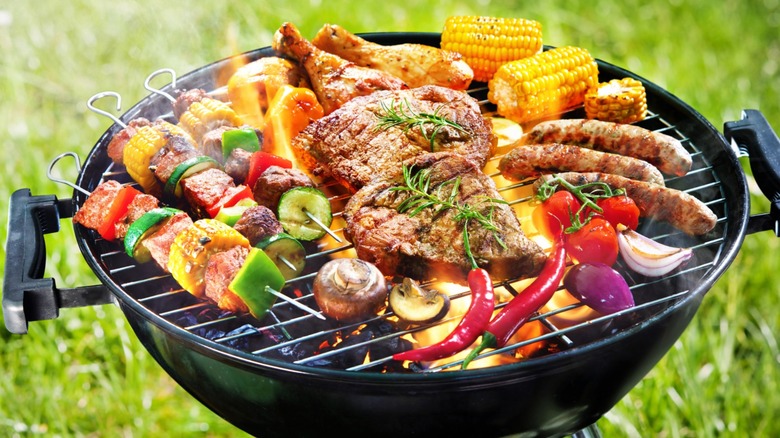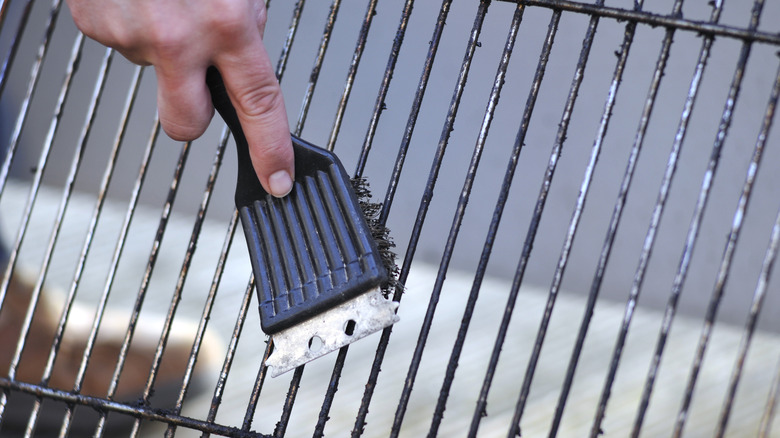The Most Important Thing To Keep In Mind When Setting Up A Grill
As grilling season begins, fire safety becomes even more crucial. To avoid the biggest grilling mistakes people make, the most important consideration when setting up your grill is its location. It's best to make sure it's stationed at least 10 feet away from your house to avoid a fire, as a general rule. Once you establish a safe distance, avoid wooden surfaces like decks and nearby outdoor furniture. This might eliminate several areas, but don't consider the grass, as it's definitely not greener — it's equally flammable. Opt for pavement or stone surfaces like the driveway or patio instead.
Although it might be tempting to take the grill into your garage, ventilation is your friend. Roofs or awnings are a fire hazard, so you'll have to tough it out in the sun. Never try to grill on uneven surfaces either. Tipped grills are a double whammy — dangerous and messy. It might seem like common sense but also remember to steer clear of areas frequented by children and pets. No one needs a burn incident on their hands. If you have children, research ways to establish grill safety before buying your first grill.
A clean grill is a safe grill
When it comes to fire safety, a clean grill is the second thing you should always consider. Leftover food residue is gross, and it can have major fiery consequences if not carefully removed. The cooking grates and the grease pan underneath them should be scrubbed after every use to prevent grease fires. You can also regularly clean the area between the grease pan and the grease bucket to minimize unnecessary flames. A simple soap-and-water combo on a grill brush is a quick fix, but make sure to buy one that doesn't contain wire. The bristles could come loose into the grill and contaminate your next batch of burgers.
In fact, your food can be a fire hazard before its particles even have the chance to build up on the grates and fall into the grease pan. There are some meats you should never grill, especially those with lots of fat. Excess grease and oily marinades can cause flare-ups if not trimmed or dried before being placed on the grill. Be sure to keep your food up to fire-safe standards to ensure no eyebrows are singed during grilling. Ultimately, your location choice will ensure that potential fires won't spread very far, but it's better to be safe by practicing other prevention measures than to be sorry.

